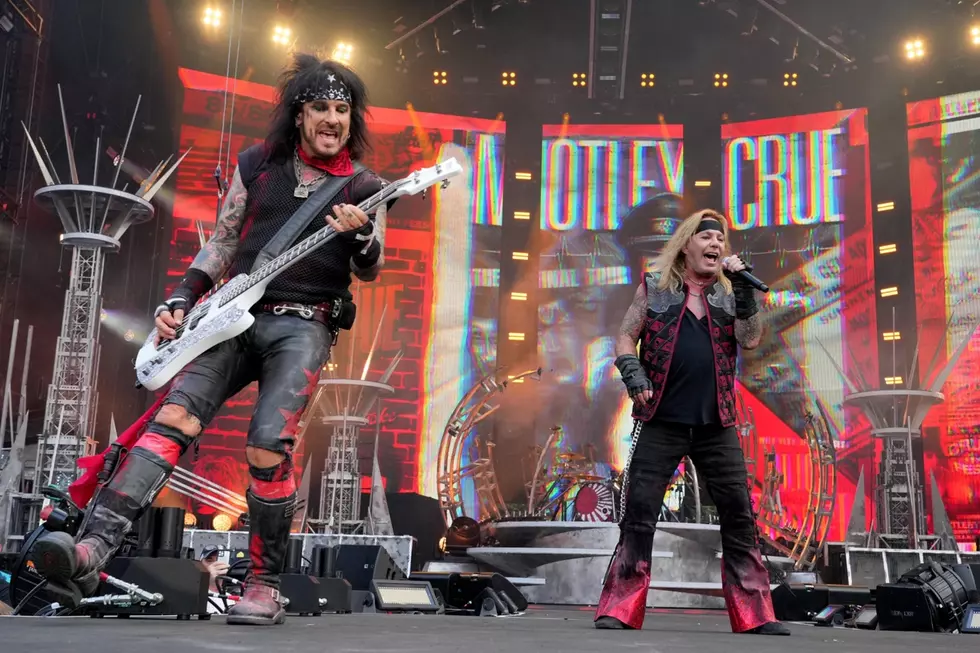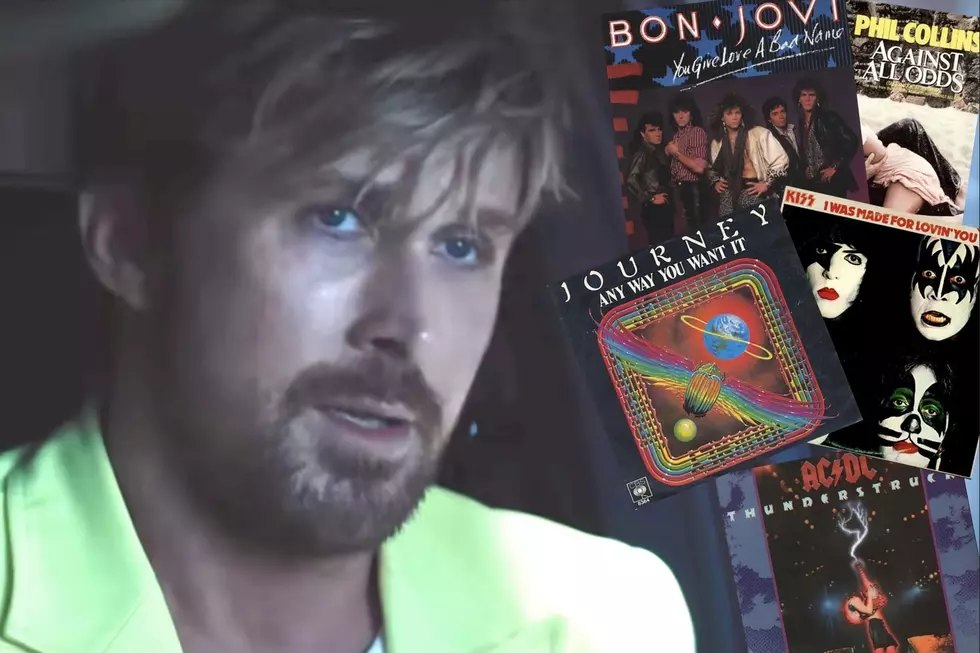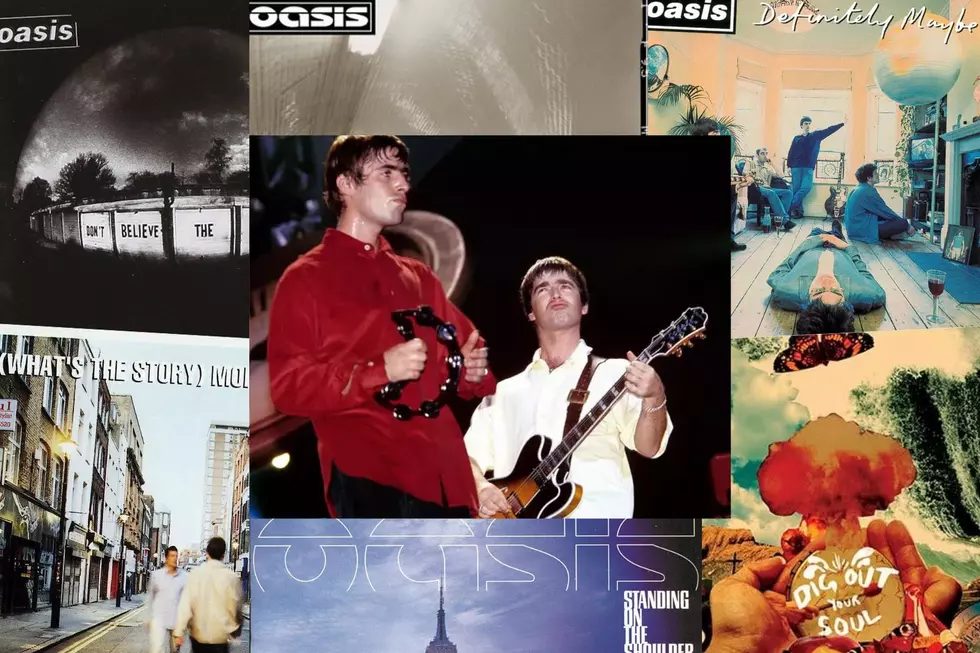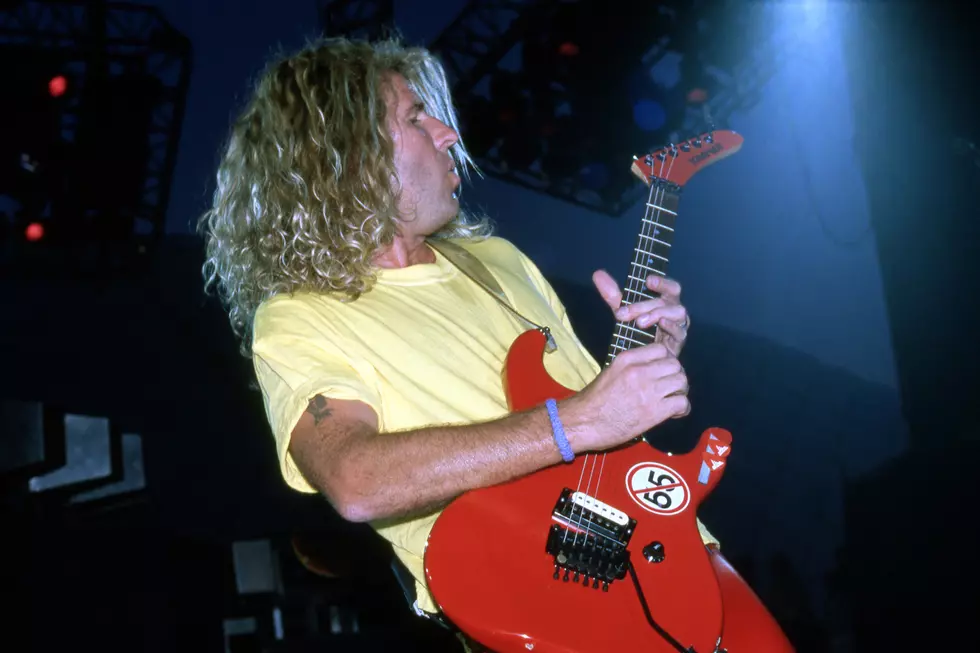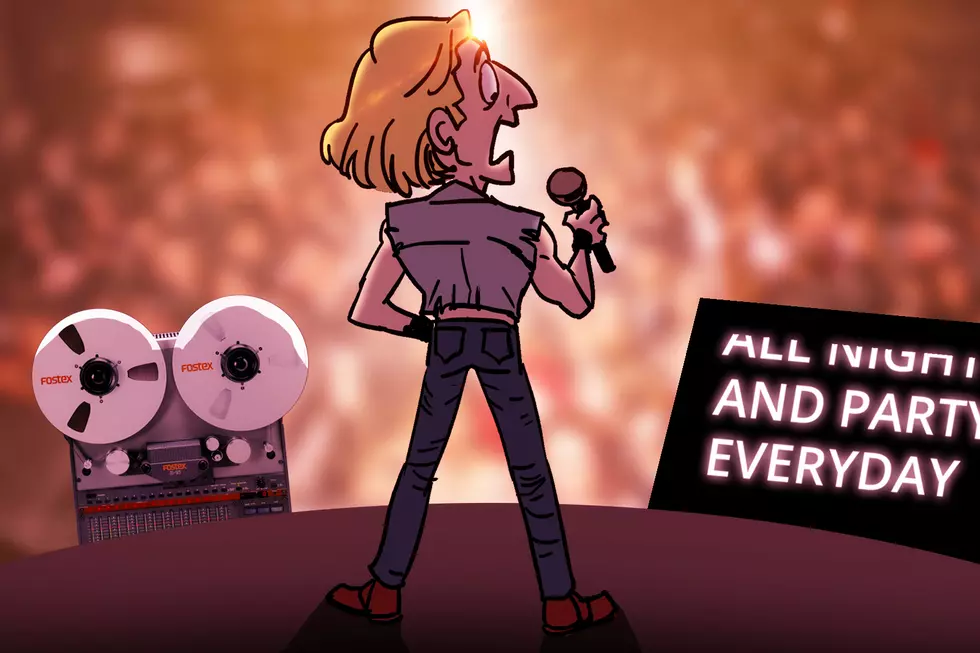
Bands Using Teleprompters and Backing Tracks: Is It Cheating?
It was a surprise, if not a shock, back in August 1978 when a prominent Detroit concert promotion firm accused Electric Light Orchestra of using taped enhancements during a pair of stadium concerts.
The group had performed Aug. 12-13 at the suburban Pontiac Silverdome and subsequently sued Brass Ring Productions for unpaid fees. In its countersuit, Brass Ring claimed ELO had used backing tapes during the shows and had in fact "confiscated" the tapes that were allegedly used. "It's not clear whether fragments or the entire concert was faked," Brass Ring President Robert Fox said at the time. The matters were eventually settled out of court, but Fox also noted, cryptically, that "this kind of stuff has happened in the past. Other bands have done it."
Flash forward more than four decades later, and they're still doing it - to varying degrees.
While there exists an unspoken kind of contract between fans and performers, particularly in the rock realm, that the concert in front of them is "real" and being played in the moment, there's also long been a winking understanding that some portions may be more Memorex than live. From triggered sounds and sonic effects to taped vocal or instrumental parts to, in occasional cases, entirely pre-recorded shows, a great many concerts - "way more than anyone would guess," according to one front-of-house sound engineer - are assisted in some form or another.
In 2019 Nikki Sixx tweeted that Motley Crue has "used technology since '87," including sequences, backing vocal tracks and "sub tones" mixed into the overall sound. "We love it and don't hide it. It's a great tool to fill out the sound," Sixx wrote.
Platinum-selling Florida rockers Shinedown have also made full disclosure of their usage, with guitarist Zack Myers telling Rock Feed in 2020 that "90% of bands do it" and adding that, "it bothers me that it bothers people. ... It's the way it is ... we want the sound to be the best it can. Could we go up there, just the four of us, and put on the best rock show ever? Of course. But that's not how we wanna do it."
Watch Motley Crue's Alleged Backing Track Mistake
It Still Feels Wrong
Despite such open acknowledgments, the idea of using sounds that aren't being played by hand is still viewed with disdain and as a stain on an act's credibility. Kansas memorably ended shows on its 1977 Point of Know Return tour by slapping at the practice by taking bows as the final song continued on tape. Milli Vanilli's career was ruined during the early '90s when it was revealed that Rob Pilatus and Fab Morvan didn't sing on their records and lip-synced during concerts.
More recently Kiss caused a furor during a June concert in Antwerp, Belgium, when drummer Eric Singer made a mistake during "Detroit Rock City" that threw the performance out of sync and revealed an apparent vocal backing track when nobody was in front of a microphone.
Former Rainbow and Deep Purple singer Joe Lynn Turner called it out to Metal Castle as "too much. ... If you are well-known and you're going out there and using backing tracks, you're not being honest; it's pantomime. It's not even karaoke. I feel it's cheating people, and it's cheating yourself. Because if you can't cut it live, well, that's what separates the men from the boys."
Three-time Deep Purple singer Ian Gillan told RockFM in Spain that he considered backing tracks "cheating. ... I know many people who do it ... that absolutely shocked me, saying, 'Yeah, we're relying on something else now.' It used to be drugs - now it's tape."
Motley Crue guitarist Mick Mars, who's retired from touring with the band, admitted on Eddie Trunk's Hair Nation that he's not fond of it either. "I have to say '60s bands were my favorite, '60s and '70s bands because they were real ... they just got up there and kicked it up. Made a mistake? So what? Sounded a little bit empty here or there? So what? ... I could put on a Motley CD and play with it all day long. I don't wanna do that."
And Chris Robinson of the Black Crowes told UCR in 2021, "When you need to use that shit, it's time to stop, you know? When people come to a live show, it should be live, all the way."
Watch Kiss' Alleged 2022 Backing Track Mistake
Why It's Done
It is, not surprisingly, a topic that artists and crews are particularly forthcoming about - at least on the record. But in talking to performers, production and stage managers, and sound mixers on the condition of anonymity, a common thread emerges about the reasons it's being done.
"Especially after MTV, when everything became so visual, there started to be a real pressure to be perfect or pretty close to it," explains the front-of-house mixer for one heavy touring rock band. Pop acts have generally gotten a pass; audiences are more concerned with the large-scale visual productions and choreography and accept that executing those may require some if not all of the vocals to be pre-recorded.
"And that's what the rock bands have to compete with," the mixer adds. "That's the standard that everybody's trying to live up to now. You can't be doing a raw, down 'n' dirty show when [other acts] are out there blowing people away with these big, pristine productions that ... sound just like the records."
Some of the enhancement decisions are also based on age and skills, somewhat concurrently. Vocal ranges change to a point where keys have to be altered, and in many cases that means the songs will sound drastically different. So rather than drop them entirely, acts weave in recorded elements to make the performances possible. And instrumentally, if a recorded part proves too difficult to reproduce, especially amid the adrenalin of a live show, a recording can be substituted to recreate the aural experience.
"There's more technology available than there ever has been," a veteran production manager says. "You try to one-up each other and stay current and raise the bar. That's the way of the world. Everybody's trying to out-perfect each other."
Different Strokes
The production manager adds that "you can't paint this with too broad of a brush," noting that there isn't a single, codified practice for enhancing the performances. Some acts may have entire orchestras pre-recorded or instruments that aren't part of the band lineup onstage. "If there isn't a keyboard player or a sax player or something actually in the group, do you bring somebody out just to play on the songs that need them?" another production manager ponders. "That's expensive, especially when it's easy enough to just plug the part into the mix."
Some productions, meanwhile, use technology more extensively, but a stage manager says that on the rock front at least, bands generally try to use only what's deemed necessary. "At the end of the day, most of these guys came up playing and still want to play; they just want the show to be great."
How It's Done
When done right, the enhancements are generally smooth and slick and go undetected unless you're looking for it or there's a breakdown. Sometimes they're triggered by the musicians themselves with devices onstage. More frequently there's a crew member with a laptop containing the sound files on Pro Tools and other software, which they carefully sync with the band's performances and send out to the soundboard just like another instrument in the mix.
"That's a critical role 'cause they'll start a click [track] that the drummer hears and keeps everything in sync," explains the front-of-house mixer. "It's absolutely critical to keep everyone in sync. The band's locked into the drummer who's playing to a click that's started by that [person onstage]." That's the most organic route, he adds, acknowledging that, "sometimes everybody's playing to a track, which is a little more like karaoke."
When the bands do fall out of sync it can be a mess, and all parties UCR spoke with remember watching acts "stumble through the set" when the technology malfunctions or end the show prematurely. Canceling altogether because of a technical malfunction "happens more than you think," the mixer adds.
And sometimes bands have fun with their trickery. The mixer recalls working a one-off gig for a major act that was using a lead vocal backing track to double the actual singer's performance. During one song the artist allowed the track to go on and then began performing his live parts in a call-and-response fashion, rolling his eyes throughout.
"Obviously he's acknowledging any embellishment and lampooning it at his own expense, like a bit of schtick that fit the personality of the band," the tech recalled.
Lip Service
Another frequent - "extremely prevalent," according to one sound mixer-- practice is the use of teleprompters, primarily by singers. "I don't think that's really cheating," says a production manager. "It's just a reminder of where you're at. It all started with cue cards on television - 'What are you going to say next?' Where's the rule that says a rock band can't have the same thing? Don't symphony musicians get to use a music stand?"
Some bands allow their teleprompters to be more visible than others, but there seem to be fewer attempts to fully hide them anymore. Some acts even post the city name above the screen to try to prevent a faux pas. They also allow bands to make switches in the set list or to insert different songs that may not have been prepared during rehearsals. It certainly proved useful to Bruce Springsteen and the E Street Band for calling audibles and also when he would foray into the audience and come back with signs requesting particular songs, which he'd call out on the spot.
Little Steven Explains Using Teleprompter on Bruce Springsteen Tours
"The guy controlling [the teleprompter] could call up the lyrics and put 'em on the screen, and we'd be able to do a good version of the song," guitarist Nils Lofgren told this writer some years ago.
"I do see people very surprised that somebody has a teleprompter, but to me it's insignificant," says a sound mixer. "If anything, it works to the benefit of the show. They're still playing live, and mostly from memory. It's just a very useful aid."
In Conclusion
Much like ticket prices, it's the audience that determines whether or not to accept the practice of concert enhancements, and so far it has. Before being interrupted by the pandemic, concert attendance and revenues were improving each year to the next, and the full-scale return in 2021 only continued that trend. It may still be surprising in some cases but is no longer shocking, and it's likely to become more of a fixture in the foreseeable future.
The Most Awesome Live Album From Every Rock Legend
More From Ultimate Classic Rock
